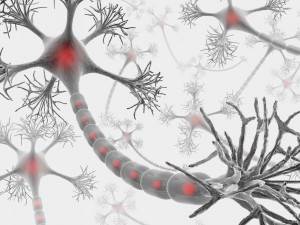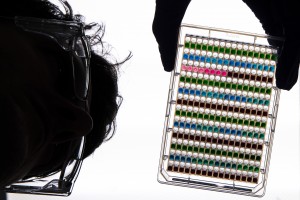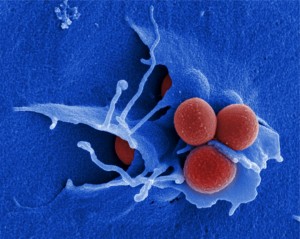Press releases
Qurient Strengthens Commitment in Germany: Multi-million Euro Investment in QLi5 Therapeutics to Accelerate Proteasome Inhibitor ADC Platform
 continue
continue
Dortmund/Seoul, January 15th, 2026 – QLi5 Therapeutics GmbH (QLi5) announced today the successful completion of a capital increase totaling approximately 6.26 million Euro. This strategic investment, significantly backed by the Korean biotech company Qurient and by QLi5 co-founder and Nobel laureate Prof. Dr. Robert Huber, is intended to decisively advance the development of QLi5’s pioneering Proteasome Inhibitor (PI)-based Antibody-Drug Conjugate (ADC) platform.
Details on Capital Increase and Strategic Alignment
During a General Meeting held on December 18th, 2025, QLi5 resolved to implement a capital increase totaling 6.26 million Euro. Qurient’s participation substantially increases the company’s voting stake in QLi5. Particularly noteworthy is the continued participation of Prof. Dr. Robert Huber, co-founder of QLi5 and 1988 Nobel laureate in Chemistry, which underscores his deep confidence in QLi5’s technological expertise and future potential.
The new funds will be specifically used to advance the development of the PI-payload technology. This next-generation ADC platform represents a promising new alternative that aims to overcome the limitations of existing ADC therapeutics.
Impressive Preclinical Results and Universal Potential
In October 2025, QLi5 and Qurient presented compelling preclinical research results for PI-payload-based ADCs at the international conference “AACR-NCI-EORTC 2025” in Boston. These garnered significant interest from experts and the pharmaceutical industry. The presentation demonstrated that the PI-payload, as a novel mechanism of action, showed excellent anti-cancer efficacy in animal models that were resistant to conventional TOP1-inhibitor-based ADCs, such as Enhertu. The potential as a “universal payload” was also confirmed, as its efficacy is not limited to specific cancer cell types but could be demonstrated across various cell types and target models.
A Strong Joint Venture with an Excellent Scientific Foundation
QLi5 Therapeutics was founded as a joint venture by Qurient in collaboration with Lead Discovery Center GmbH (LDC), Max Planck Society (MPG), and Prof. Dr. Robert Huber. Prof. Dr. Huber, a renowned structural biologist, received his Nobel Prize in Chemistry for being the first to decipher the three-dimensional structure of the proteasome, a cellular proteolytic apparatus. Building on his findings and the subsequent drug discovery work by LDC, QLi5 has developed a next-generation therapeutic approach that drastically reduces the side effects of previous proteasome inhibitors and can extend its spectrum of application to various cancer types.
Kiyean Nam, CEO of Qurient, commented: “This capital increase is far more than mere financing; it is a strategic decision to fully unlock the enormous potential of QLi5’s PI-mechanism technology as a next-generation ADC payload. With the continued support of Prof. Dr. Robert Huber and the strong network of LDC and MPG, we will accelerate development to become a gamechanger in the global ADC market.”
###
About Lead Discovery Center
Lead Discovery Center GmbH (LDC) was established in 2008 by the technology transfer organization Max Planck Innovation, as a novel approach to capitalize on the potential of excellent basic research for the discovery of new therapies for diseases with high medical need. LDC takes on promising early-stage projects from academia and transforms them into innovative pharmaceutical leads and antibodies that reach initial proof-of-concept in animals as well as candidate nomination. In close collaboration with high-profile partners from research and industry, LDC is building a strong and growing portfolio of small molecule and antibody leads with exceptional medical and commercial potential.
LDC sustains a long-term partnership with the Max Planck Society and its institutes as well as with KHAN Technology Transfer Fund, and has formed numerous alliances with pharma and biotech companies, in particular with JT Pharmaceuticals (now: Shionogi) as well as AstraZeneca, Bayer, Merck KGaA, Qurient, InvIOS, Cumulus Oncology, Nodus Oncology, KinSea Lead Discovery, HLB Life Science R&D, KyDo Therapeutics and the Helmholtz Center for Infection Research, e.g. In addition, LDC also works with leading translational drug discovery centers and in addition to a preferred partnership with KHAN with various investors to provide its assets for company creation.
Further information at: www.lead-discovery.de
About Qurient
Qurient Co., Ltd. is a clinical-stage biotechnology company headquartered in South Korea and listed on the Korea Exchange (KRX: 115180). The company is focused on developing innovative medicines and targeted therapies across oncology and infectious diseases.
Further information at: www.qurient.com
About QLi5 Therapeutics
QLi5 was founded in 2019 as a joint venture of Qurient Co. Ltd, Korea, Max Planck Society, Germany, LDC, Germany, Nobel laureate Prof. Dr. Robert Huber, emeritus director of the Max Planck Institute for Biochemistry, Germany. The company has previously secured funding from a renowned group of investors, KHAN Technology Transfer Fund among others.
Further information at: www.qli5tx.com
About KHAN Technology Transfer Fund
KHAN Technology Transfer Fund (KHAN) is an early-stage life sciences venture fund, supported by its limited partners, European Investment Fund (EIF), Luxembourg, Max-Planck Foundation, Germany, Thyssen’sche Handelsgesellschaft, Germany, Austrian Wirtschaftsservice, Austria and Akros Pharma, USA. Its mission is to create value through cooperative drug development partnerships with academic innovators in Europe. KHAN focuses on first-in-class therapies for attractive markets with a high unmet medical need. KHAN has unique access to cutting-edge scientific research at Max Planck and leading European academia. KHAN is managed by Khanu Fondsverwaltung GmbH, a world class drug discovery and fund team, having access to the state-of-the-art drug discovery incubator Lead Discovery Center GmbH, achieving an exceptional low attrition rate and effective investments.
Further information at: www.khanu.de
###
Contact:
Lead Discovery Center GmbH
E-mail: pr@lead-discovery.de
See also: Qurient source press release



 less
less



